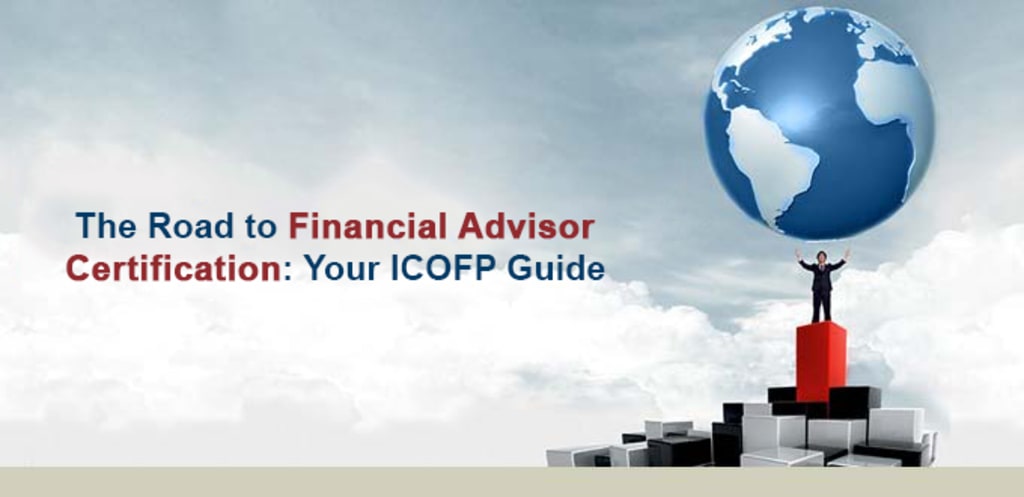
Are you interested in a career in Finance and helping individuals and businesses manage their finances? If so, becoming a Certified Financial Advisor (CFA) may be your right path. While the road to becoming a CFA may seem daunting, it is a rewarding and fulfilling career requiring unique skills and qualifications.
In this guide from the International College of Financial Planning (ICOFP), we will explore the steps you need to take to become a certified financial advisor.
Step 1: Obtain a bachelor's degree
Obtaining a bachelor's degree in a finance-related discipline is the first step toward earning a CFA. Finance, accounting, economics, and business administration are examples of financial advisor qualifications. A master's degree in a similar discipline, such as an MBA or a Master's in Finance, is common among financial advisers.
Step 2: Gain Work Experience
Work experience in the financial business is required to acquire a CFA. Working at a bank, investment business or insurance company is one example. Many financial advisers begin as financial analysts or assistants and advance to more senior roles.
Step 3: Complete a Certification Program
You must complete a certification program to become a CFA. The Certified Financial Planner (CFP) program is the most prevalent certification program for financial advisers. The CFP Board offers this program, which includes the completion of courses in financial planning, taxation, insurance, and investment planning. Often, the education is performed through a combination of online and in-person classes.
Step 4: Pass the Certification Exam
After completing the certification program, you must pass a certification test. The CFP test lasts six hours and covers various financial planning subjects, such as retirement planning, estate planning, and investment planning.
Step 5: Obtain a License
To work as a financial adviser, you must first complete a certification program and pass an exam. You must then get a license. The prerequisites for obtaining a license vary by state but often include further training, passing a licensure test, and achieving specified experience requirements.
Step 6: Maintain Continuing Education
It would help if you took continuing education classes to keep your certification and license as a financial advisor. Examples of such activities are attending conferences, taking online courses, or engaging in professional development programs. The specific criteria differ by state and certification program.
In contrast to these processes, certain abilities and attributes are required for success as a financial advisor. These are some examples:
- Excellent analytical and problem-solving abilities.
- Strong interpersonal and communication abilities.
- Financial market knowledge and investment methods.
- Ability to operate both individually and collaboratively.
- Strong ethical standards and a dedication to operating in clients' best interests
At the International College of Fashion Planning, we provide a variety of programs and materials to assist aspiring financial advisors on their journey to earning a CFA. Our CFP certification program is designed to give students the information and abilities they need to thrive in this area, and our experienced faculty members are ready to direct and assist students throughout the approval process.
In parallel to our certification program, we provide a variety of continuing education courses and professional development programs to help financial advisors keep current on industry trends and best practices. Our offerings include webinars, conferences, and networking opportunities, as access to industry experts and thought leaders.
If you want a career as a certified financial advisor, ICOFP is here to help. With our comprehensive programs and resources, you can take the first steps towards achieving your career goals and making a difference in your client's lives.
In conclusion
To become a qualified financial advisor, you must be dedicated, hardworking, and committed to lifelong learning. You may begin your journey toward a meaningful and successful career in Finance by following the steps in this handbook and using the tools provided by ICOFP. Remember, as a financial adviser, you can positively affect your customers' lives and assist them in achieving financial stability and success. Good luck on your journey!





Comments
There are no comments for this story
Be the first to respond and start the conversation.